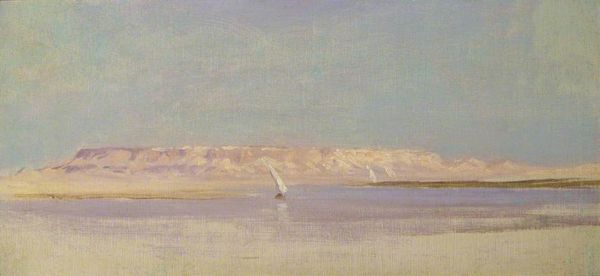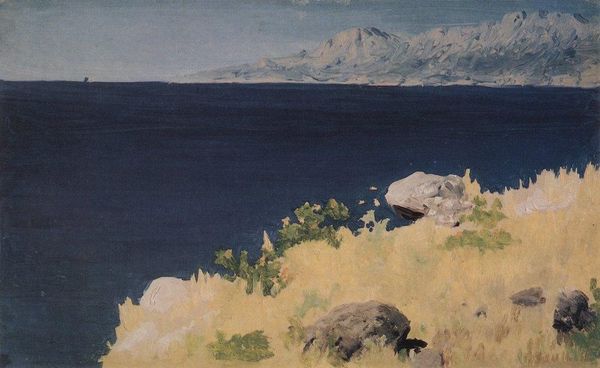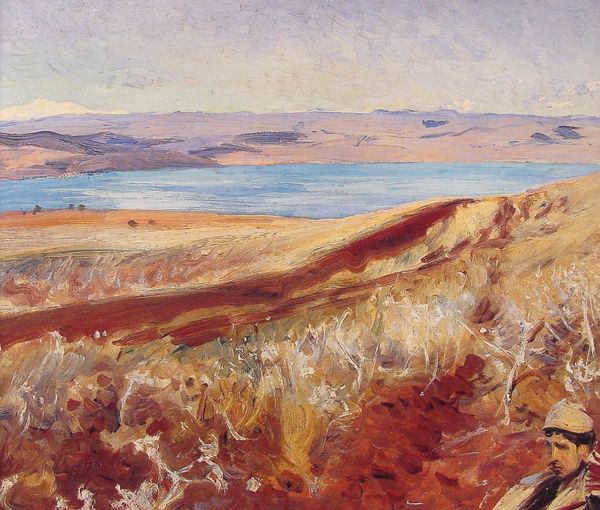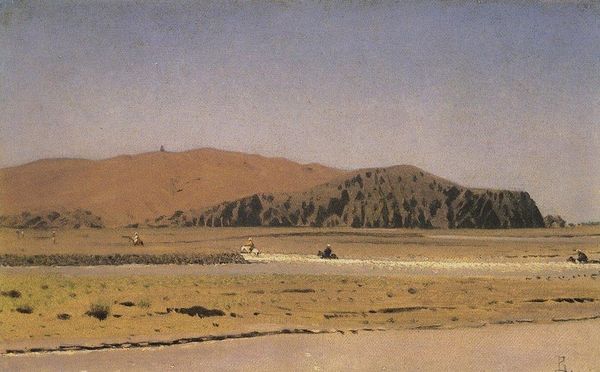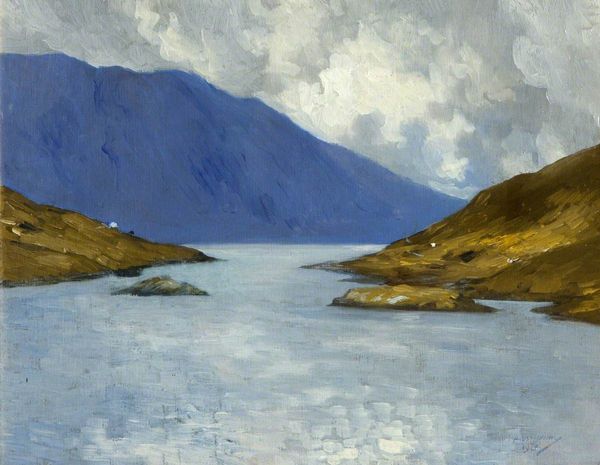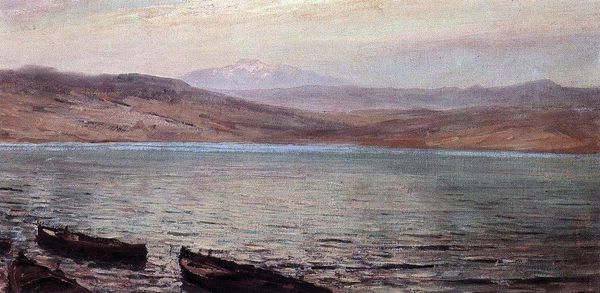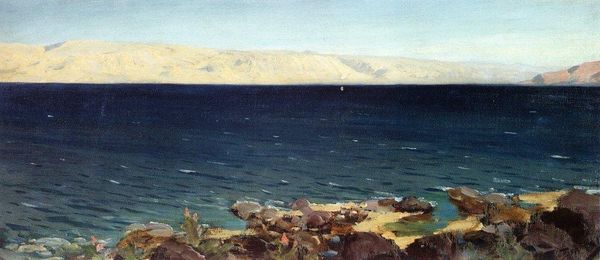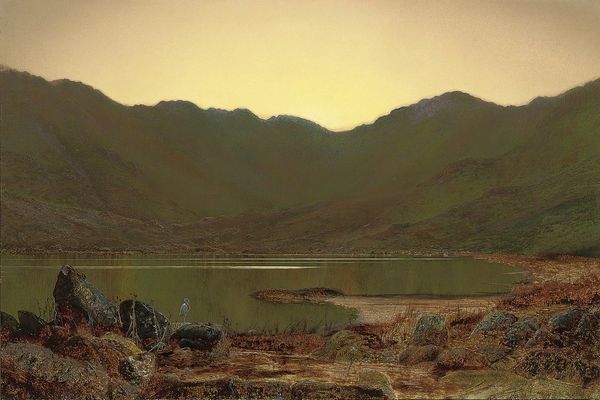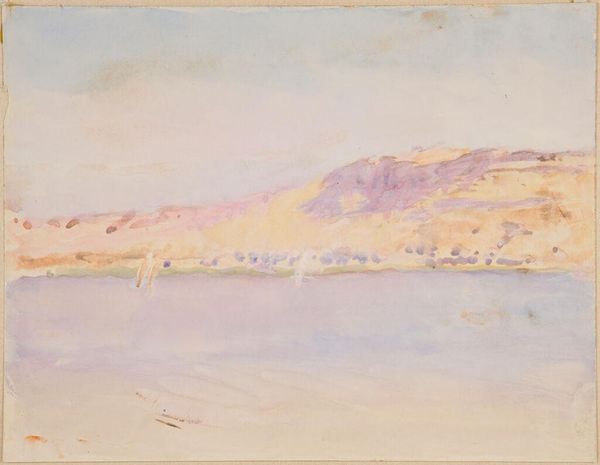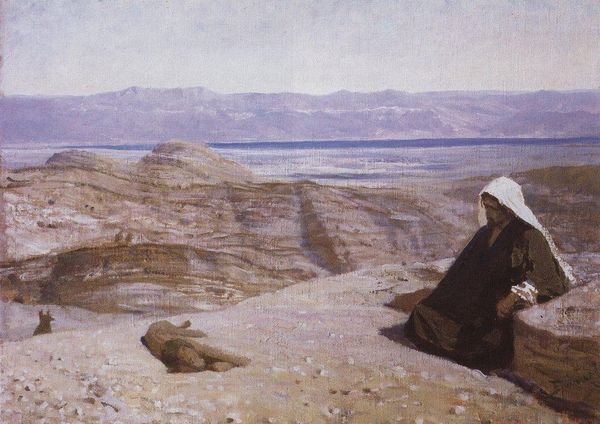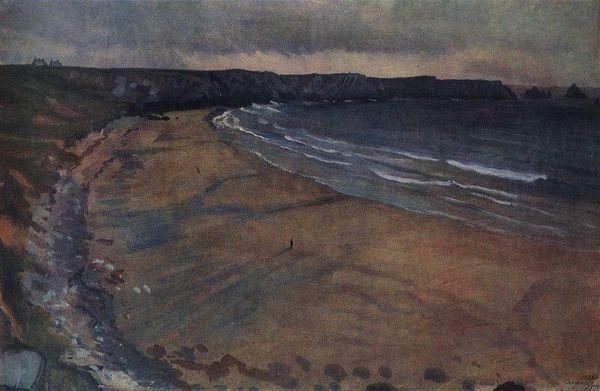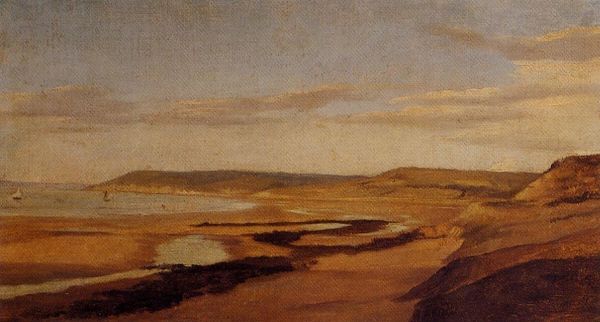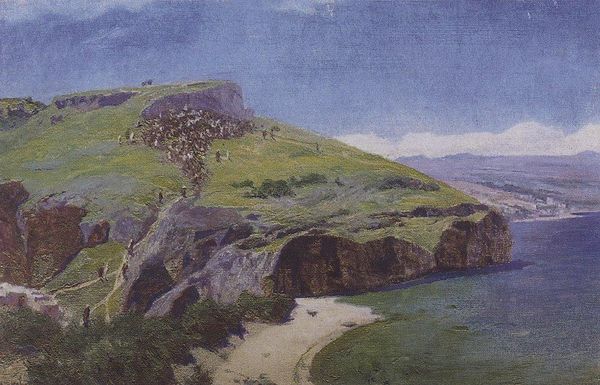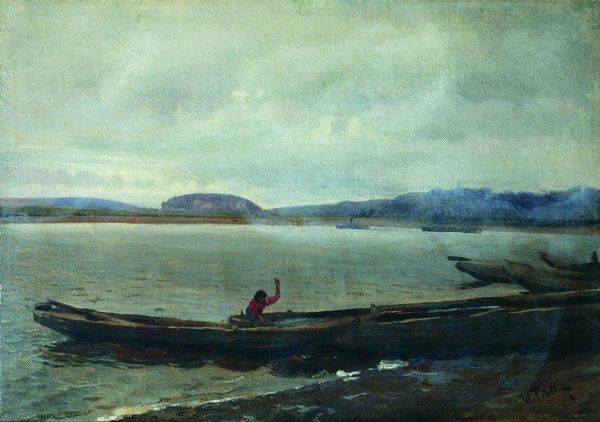
painting, oil-paint
#
sky
#
painting
#
impressionism
#
oil-paint
#
landscape
#
oil painting
#
realism
Copyright: Public domain
Curator: Vasily Polenov painted *Dead Sea* in 1882, using oil paints. It has qualities of both realism and impressionism in the landscape. Editor: My initial thought is that this scene evokes a strong sense of desolation. The palette feels muted, as if drained of life. Curator: Absolutely. Consider how the barren trees in the foreground reflect symbolic death and spiritual barrenness associated with the Dead Sea throughout religious history and its lore of sterility. Editor: And look at how Polenov utilizes a dry brush technique, especially noticeable in the depiction of the foreground. The rough texture enhances the sense of aridity. It's like he's mirroring the material reality of a landscape ravaged by extreme conditions through the very process of applying paint to the canvas. Curator: Exactly. Notice also the muted sky, it isn’t uplifting, perhaps acting as an additional symbol weighing on the human spirit, the idea of an unforgiving, even oppressive heaven or higher power above this already difficult environment on earth. Editor: It brings up questions of access to resources and survival. One has to ask about the availability, or rather, the absence of water. The title becomes more than just a geographic reference, turning instead into a comment on social inequality—who has access to life-sustaining resources, and who doesn't. Curator: The lone mountains on the horizon are the keepers of mystery and memory here. The shapes convey constancy through an immense geological and biblical timeline. Editor: Yes, Polenov focuses intently on how materials interact with this landscape: water, mountains, dry brush. The making, then, foregrounds issues of resources and land, forcing a viewing relationship concerned with production and use. Curator: Considering its biblical associations with divine punishment, *Dead Sea* leaves me contemplating themes of human fallibility. Editor: And for me, it drives home how art, through its materials and their manipulation, reveals silent struggles with power.
Comments
No comments
Be the first to comment and join the conversation on the ultimate creative platform.
